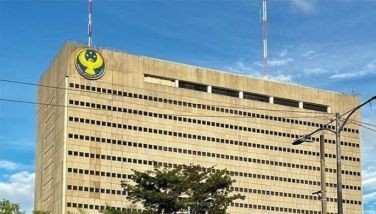BSP won’t budge on policy stance amid Japan, United States stimulus
MANILA, Philippines – The Bangko Sentral ng Pilipinas (BSP) reiterated yesterday the country’s monetary policy stance remains appropriate amid the stimulus measures adopted by advanced economies, particularly Japan and the US.
BSP Governor Amando Tetangco Jr. said there is no urgency for the central bank’s Monetary Board to tweak its policy stance after a surprise move by the Bank of Japan when it took its interest rates into negative territory to kick-start its struggling economy.
Late last week, Japan’s central bank announced it would cut the rate on current accounts that commercial banks hold with it to -0.1 percent. This means banks would be charged for keeping their money with the central bank.
European Central Bank president Mario Draghi earlier announced it could step up its stimulus program as early as March due to low inflation and the financial market turmoil.
On the other hand, the US Federal Reserve finally tweaked its near-zero interest rates for the first time in almost a decade through a 25 basis point hike last Dec. 16.
“We monitor what advanced economies’ central banks and central banks in the region do as these affect risk appetite of global investors and therefore capital flows also.
Authorities will do what they believe would work for their specific circumstances,” he said.
Tetangco pointed out the country’s central bank do not have to take the same monetary stance of neighboring countries in the region.
“Also we don’t have to move in sync. So far our fundamentals have held up against these and other headwinds, aggregate demand remains firm and inflation expectations are well anchored,” he added.
The country’s economic expansion picked up in the fourth quarter as the gross domestic product (GDP) grew 6.3 percent from the revised 6.1 percent in the third quarter due to robust domestic demand and improving government spending.
Weak global demand and lack of government spending pulled down the GDP growth to 5.8 percent last year from 6.1 percent in 2014. This was also lower than the seven percent to eight percent target penciled by economic managers.
On the other hand, inflation eased to a 20-year low of 1.4 percent last year from 4.1 percent in 2014 amid stable food prices and lower utility rates brought about by the softening oil prices in the world market.
“Thus, there is no real urgency to change stance of policy now. Election spending has a small positive impact on GDP and could raise inflation slightly. But these are not expected to persist,” Tetangco said.
He explained the reforms of the previous administrations including that of President Aquino could not be undone.
“Many of the critical economic reforms have been institutionalized, so we can expect continuity of policies,” the BSP chief said.
- Latest
- Trending


























